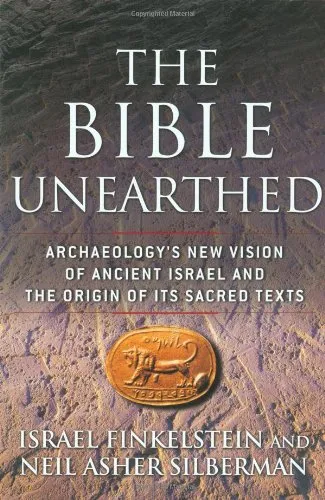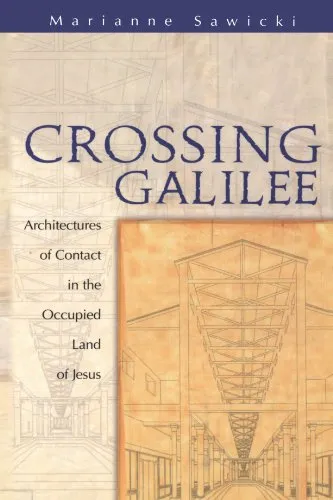The Bible Unearthed: Archaeology's New Vision of Ancient Israel and the Origin of Its Sacred Texts
4.5
Reviews from our users

You Can Ask your questions from this book's AI after Login
Each download or ask from book AI costs 2 points. To earn more free points, please visit the Points Guide Page and complete some valuable actions.Related Refrences:
Welcome to an in-depth exploration of one of the most influential books that blends archaeology with the biblical narratives: "The Bible Unearthed: Archaeology's New Vision of Ancient Israel and the Origin of Its Sacred Texts" by Neil Asher Silberman and Israel Finkelstein. This profound work challenges traditional views with fresh insights into the historical contexts and realities that shaped ancient Israel and its sacred texts.
Detailed Summary of the Book
"The Bible Unearthed" sets forth a groundbreaking examination of the Hebrew Bible, placing it against the backdrop of new archaeological discoveries from the region traditionally known as Canaan, now modern-day Israel and Palestine. Authors Neil Asher Silberman and Israel Finkelstein combine their expertise in archaeology and biblical history to delve deep into the origins of the ancient kingdoms of Israel and Judah.
The book reinterprets archaeological findings to make a compelling case that many narratives in the Bible are more reflective of the historical realities during the seventh century BCE than of the times they portray. With a focus on key components such as the stories of the patriarchs, the Exodus, the conquest of Canaan, and the reigns of David and Solomon, the authors propose that these elements of the Hebrew Bible were products of a specific socio-political milieu.
"The Bible Unearthed" critically examines each of these stories, cross-referencing them with archaeological data and proposing that the Deuteronomistic historians crafted these narratives to bolster national identity and unity amongst the people of Judah.
Key Takeaways
- The traditional biblical chronology aligns poorly with archaeological evidence, leading to a re-evaluation of ancient Israel’s historical narrative.
- Much of the Hebrew Bible's content was likely composed in the seventh century BCE to address the needs of the Kingdom of Judah during a critical period of religious and political reform.
- The patriarchal narratives and the stories of the Exodus, conquest, and united monarchy might be more historical allegory than direct historical accounts.
- Archaeology provides a critical lens through which to understand the Bible as a product of its time, offering insights into ancient society, culture, and religion.
Famous Quotes from the Book
"Archaeology has the power to confound as well as confirm, and it has now become clear that many of the historical narratives in the Bible were crafted during a later stage of history than traditionally thought."
"We can no longer accept the idea of ancient Israel as it is described in the Bible as a uniform and consistent historical narrative."
Why This Book Matters
"The Bible Unearthed" matters because it shifts the paradigm through which the ancient narratives of the Israelite and Judean past are understood. By aligning biblical stories with archaeological evidence, the book offers a nuanced framework that respects both religious traditions and scientific inquiry.
This book is fundamental for scholars, theologians, and laypersons interested in the intersection of archaeology and biblical studies. It encourages a broader understanding of how narratives shape, reflect, and sometimes reconstruct human history. By providing a context-grounded exploration of biblical stories, "The Bible Unearthed" not only redefines the past but also invites discussion on the implications for contemporary faith and cultural identity.
Free Direct Download
You Can Download this book after Login
Accessing books through legal platforms and public libraries not only supports the rights of authors and publishers but also contributes to the sustainability of reading culture. Before downloading, please take a moment to consider these options.
Find this book on other platforms:
WorldCat helps you find books in libraries worldwide.
See ratings, reviews, and discussions on Goodreads.
Find and buy rare or used books on AbeBooks.



